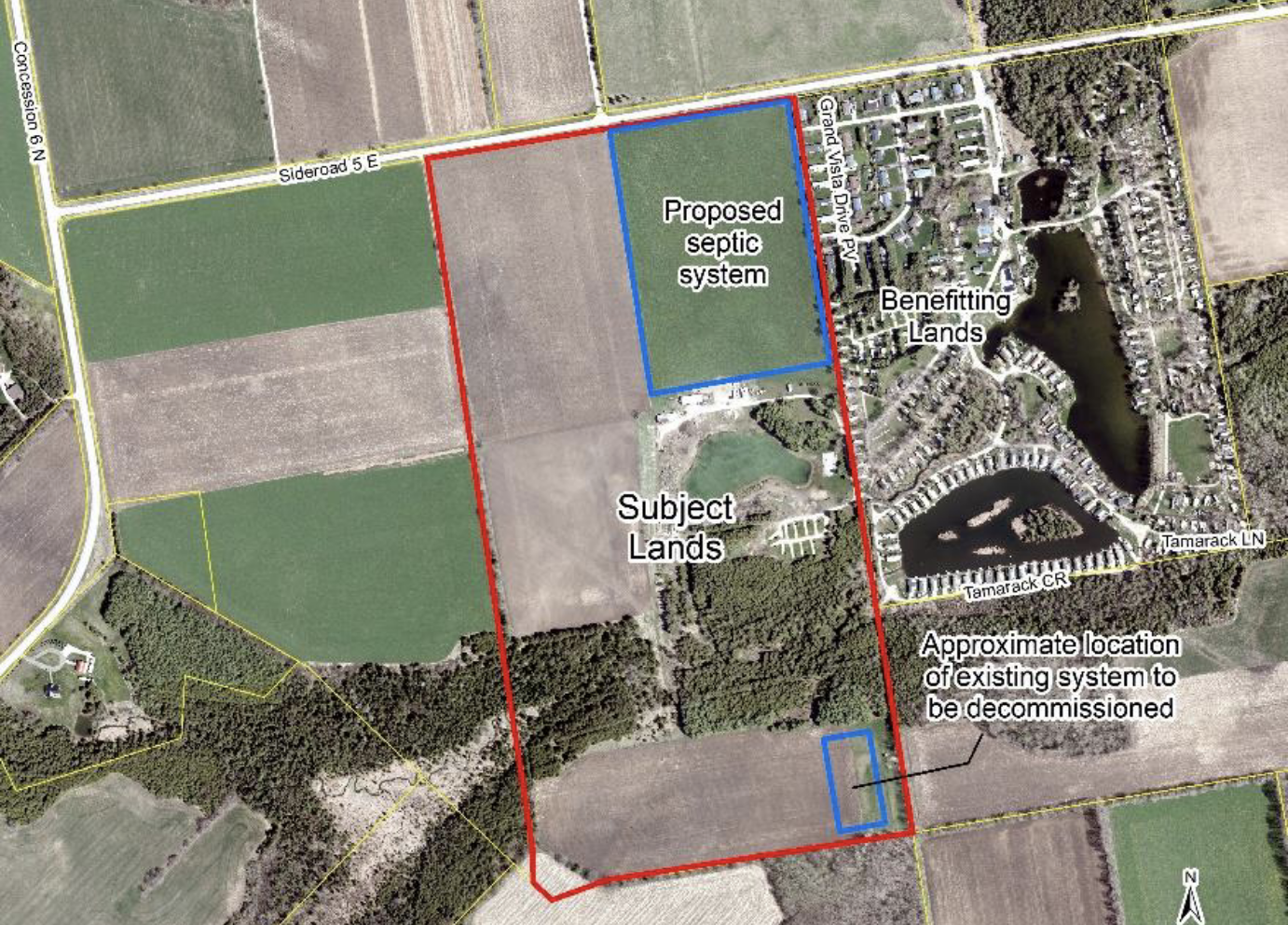WELLINGTON NORTH – Council here has approved a zoning bylaw amendment allowing installation of a septic system for the Spring Valley (Parkbridge Lifestyles Communities Inc.) RV park on Sideroad 5 East.
The system, occupying around 17 acres, will be located on an adjacent agriculturally-zoned parcel of land, about 40 total hectares in size, including a pond, open land, and the system itself.
Parkbridge Lifestyles has no intentions of expanding, a consultant representing the the park operator told council on Aug. 29; rather the operator wants to adequately provide for the amount of waste generated at the park by replacing an existing septic system.
Waste would be gravity fed and pumped from the park to the new system.
Councillor Lisa Hern questioned why a conventional system was preferred, and why a system could not be built where the park already exists.
Tom deBoer, the consultant representing the park, said although a tertiary system would use a smaller area, the conventional is preferred from an environmental perspective.
He added the province prefers such a system be used if there is available area.
“Which is why we’ve sort of been forced to go to the adjacent property,” deBoer said.
“It just spreads the [waste] over a much larger area for a better result.”
Hern seemed satisfied with deBoer’s response.
Two residents spoke in person at the council chamber (the first partial return since the pandemic caused meetings to be held online), asking if land would continue to be used for agriculture and what would become of the current system.
Greg Dineen has land abutting and spoke positively of relations with the neighbouring park, voicing support of the project despite the agricultural land that will be taken out of production.
Any land not involved in the system will continue to be rented to a farmer who will continue cropping land surrounding the system, deBoer said.
Kent Benson spoke negatively of Parkbridge, saying 25 acres of his wheat crop, located on land adjacent to the RV park, were ruined last year. He didn’t expand on the circumstances.
Benson questioned why the system must occupy 17 acres , and asked what would happen to the old system.
The system is a conventional bed design, meaning it’s larger and more passive in nature, dissolving waste in natural air and land, deBoer explained.
According to deBoer, the system meets ministry regulations for the smallest available footprint.
As for the existing system, it would be decommissioned according to environmental regulations. The land would remain fallow or be used for agriculture.
The physical tank and pipe network would be removed, and soil would become inert after three months.
Such work could occur in the spring of 2023, deBoer said, “shortly after the commissioning of the [new] system.”
Following last week’s public meeting on the matter, council approved the requested amendment to the township zoning bylaw, changing the area from agricultural zoning to agricultural site-specific.




